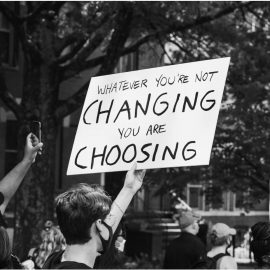

This article is an excerpt from the Shortform book guide to "A Promised Land" by Barack Obama. Shortform has the world's best summaries and analyses of books you should be reading.
Like this article? Sign up for a free trial here .
What was the Obama healthcare reform bill? Did the bill pass?
Like many other liberals, Obama believed in healthcare reform. But the Obama healthcare reform bill wasn’t easy to pass.
Read more about the Obama healthcare reform bill.
Obama and the Fight for Universal Healthcare
So far, we’ve explored the Obama administration’s efforts to rescue the domestic and global economy, refocus America’s commitments in Afghanistan and Iraq, and set a new course in U.S. foreign policy. But for Obama, healthcare reform was more important.
So while all of these developments were taking place, the administration was also gearing up for the battle to pass what would become its signature domestic policy achievement—the Patient Protection and Affordable Care Act, commonly known as Obamacare.
The Unfinished Work of Liberalism
The push to bring universal health care to the United States was the great unfinished work of American liberalism. Every Democratic president since Franklin Delano Roosevelt had tried and failed to enact some version of universal health care, with the most high-profile defeat being President Bill Clinton’s health care proposal in 1994 (derisively labeled “Hillarycare”).
Particularly galling to progressives like Obama was the fact that every other industrialized country had long since achieved some version of universal coverage. In the U.S., however, conservatives and their allies in the medical industry had always succeeded in blocking it, usually by stoking fear about a “government takeover” of health care and inveighing against the perils of “socialized medicine.”
Instead, the U.S. had developed a private, employer-based model of coverage, in which health insurance was provided to workers and their families by employers. Programs like Medicare (a federal program providing single-payer coverage for seniors) and Medicaid (a joint state-federal program providing coverage for people with low incomes) filled in some of the gaps left by the employer-based system, but fell far short of providing universal coverage—with 43 million Americans uninsured by the time Obama took office.
A Failing Health Care System
By 2009, there was widespread agreement that the American health care system was in dire need of reform. Medical specialization, breakthroughs, and innovation could deliver great health benefits, but also dramatically drove up the cost of treatment.
Because of the complex nature of health care and the vast knowledge disparity between the average patient and the medical providers, patients increasingly found themselves at the mercy of pharmaceutical companies, insurance carriers, device makers, and hospital networks, with no effective way to make informed health care spending decisions.
Worse, America’s vast uninsured population drove up health care costs even for those who did have insurance. This was because the uninsured were more likely to wait until they were extremely ill (and thus, more expensive to treat) before seeking treatment at hospital emergency rooms—with for-profit hospitals making up the loss by overcharging their insured patients.
But perhaps the most morally indefensible features of the system were the practices of the big insurance companies to deny coverage to their customers—because actually paying for treatment cut into their bottom lines. Thus, insurers forced upon their customers high-deductible plans, expensive co-pays, and lifetime caps on coverage, while totally denying coverage to those with “pre-existing conditions,” all in an effort to contain costs and maximize profits.
The Political Danger of Healthcare Reform
But passing Obama healthcare reform wasn’t easy. Despite the consensus on the failures of the health care system, there was great political risk for the Obama administration in attempting to reform it. Although tens of millions remained uninsured, most people did have insurance, liked their insurance and their doctor, distrusted anything that came out of Washington, feared losing what they already had, and didn’t want their tax dollars going to pay others’ coverage.
Furthermore, reform would be opposed tooth-and-nail by the GOP, as well as the many wealthy and powerful interests that benefited from the system as it was. Rahm Emanuel and other veterans of the failed 1994 Clinton health care fight grimly recalled the steep political price the Democratic Party had paid in the midterm elections that year—losing 54 House seats and losing both the House and Senate. They warned Obama that a failed bill could kill his presidency entirely.
A Moral Issue
While Obama was obviously concerned about the politics, health care was a deeply moral—and profoundly personal—issue for him. For Obama, healthcare reform was essential. On the campaign trail, he’d spoken with countless Americans who told him horror stories about paying astronomical hospital bills and suffering medical-related bankruptcies. Many told him that they had even chosen to forgo urgently needed care altogether because they couldn’t afford it.
Hearing these stories, he shuddered to think about what might have happened to Malia and Sasha if they hadn’t had regular access to a pediatrician. He also recalled how his own mother had delayed her cancer treatments many times during the course of her illness, for fear of leaving her survivors with high medical debt.
As president, Obama believed he had a moral obligation to put an end to the needless, wasteful suffering Americans had been forced to endure under a failing health care system.

———End of Preview———
Like what you just read? Read the rest of the world's best book summary and analysis of Barack Obama's "A Promised Land" at Shortform .
Here's what you'll find in our full A Promised Land summary :
- How Barack Obama went from relative obscurity to the first Black president
- What principles guided his political leadership style
- Why Obama retained an unshakable faith in the potential and promise of America






